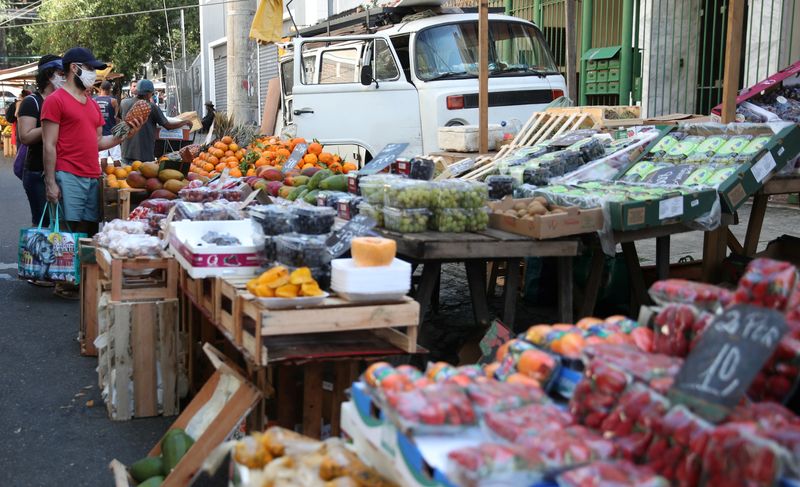Brazil’s inflation slows will fall short of government’s forecast
2023.01.10 09:12

Brazil’s inflation slows will fall short of government’s forecast
By Kristina Sobol
Budrigannews.com – Brazil’s inflation ended 2022 with a sharp slowdown from double-digit peaks seen throughout the year as a result of fiscal measures and aggressive monetary policy tightening, but it once more missed the official target set by the government.
Statistics agency IBGE reported on Tuesday that the benchmark IPCA consumer price index increased by 5.79 percent in 2017, exceeding the 5.60 percent median forecast in an economists’ poll conducted by Reuters.
This was the second consecutive year that the outcome fell short of both the annual target of 3.5% and the top 5% of the central bank’s tolerance band.
Roberto Campos Neto, head of the central bank, is required by law to publish a letter explaining why the inflation target was missed. The central bank claims that it will be made available on Tuesday.
IBGE reported that the index increased by 0.62 percent in December alone, exceeding a Reuters poll’s 0.45% forecast.
According to Andres Abadia, Pantheon Macroeconomics’ chief Latin America economist, tight financial conditions, sluggish economic growth, and widespread tax exemptions to lower prices are contributing to Brazil’s ongoing disinflation.
In a note to clients, he stated, “Assisted by the recent fall in oil prices, inflation should continue to decline over the next three to six months, though at a more modest pace than in the second half.”
The central bank raised its key interest rate from a record low of 2% in March 2021 to 13.75% in 2022, continuing its aggressive monetary tightening strategy to combat inflation. Rates have remained at their cycle-high since September, indicating that policymakers remain concerned about inflationary pressures.
Capital Economics’ chief emerging markets economist William Jackson said that after leftist President Luiz Inacio Lula da Silva got Congress’ approval to increase welfare spending, the higher-than-expected inflation in 2022 coincided with growing fiscal concerns.
Jackson stated that this will give the central bank “more reason to delay the start of its easing cycle.”
According to IBGE, food and beverage prices went up by 11.64 percent and personal care products by 11.43 percent last year, respectively.
Until July of last year, overall 12-month inflation was in the double digits due to rising commodity prices brought on by the war in Ukraine.
However, prior to the October presidential election, the government of former President Jair Bolsonaro took measures to lower prices, including a costly tax exemption on fuels that Lula recently extended.
Additionally, a reduction in state taxes on energy, telecommunications, and fuels was approved by Congress the previous year.
Due to the drop in gasoline prices of 25.78 percent, the transport group had a negative contribution to inflation in 2022 of 1.29 percent.
More Lending in China has reached a record level
When international oil prices settled, the state-owned oil giant Petrobras implemented a series of price cuts, which contributed to the disinflationary trend.








